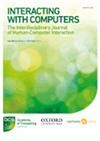无障碍玩家体验设计选项的验证和优先级
IF 1.3
4区 计算机科学
Q3 COMPUTER SCIENCE, CYBERNETICS
引用次数: 1
摘要
数字游戏的无障碍设计在研究和实践中都得到了迅速发展。虽然易用性曾经是一个小众领域,但现在它已成为商业游戏的关键功能。通常情况下,游戏通过提供一系列设置和玩法选项来实现易用性,玩家可以根据自己的需求和喜好进行定制。然而,关于玩家喜欢的可访问性选项,如何在设计中优先考虑选项或选项如何影响玩家体验的系统数据却明显缺乏。本文介绍了一项研究,该研究收集了玩家偏好的选项数据,并用它来扩展和验证游戏中无障碍设计的设计词汇。此外,研究结果还指出,在执行修改玩家所遇到挑战的选项之前,需要优先考虑特定类型的选项,特别是那些与游戏玩家反馈循环相关的选项。本文章由计算机程序翻译,如有差异,请以英文原文为准。
Validation and Prioritization of Design Options for Accessible Player Experiences
The profile of accessible design of digital games has increased rapidly in both research and practice. Whereas at one time accessibility was a niche area of interest, it is now a key feature promoted in commercial gaming. Typically, games achieve accessibility by offering a range of options, both in settings and gameplay, that players can customize to meet their individual needs and preferences. However, there is a distinct lack of systematic data regarding the accessibility options that players prefer, how options can be prioritized in design or how options can impact player experience. This paper presents a study that collects data about options preferred by players and uses it to expand and validate a design vocabulary for accessible design in games. Further, the results point to a need to prioritize particular types of options, specifically those relating to the player-feedback loop of games, before implementing options that modify the challenges encountered by players.
求助全文
通过发布文献求助,成功后即可免费获取论文全文。
去求助
来源期刊

Interacting with Computers
工程技术-计算机:控制论
CiteScore
2.70
自引率
0.00%
发文量
12
审稿时长
>12 weeks
期刊介绍:
Interacting with Computers: The Interdisciplinary Journal of Human-Computer Interaction, is an official publication of BCS, The Chartered Institute for IT and the Interaction Specialist Group .
Interacting with Computers (IwC) was launched in 1987 by interaction to provide access to the results of research in the field of Human-Computer Interaction (HCI) - an increasingly crucial discipline within the Computer, Information, and Design Sciences. Now one of the most highly rated journals in the field, IwC has a strong and growing Impact Factor, and a high ranking and excellent indices (h-index, SNIP, SJR).
 求助内容:
求助内容: 应助结果提醒方式:
应助结果提醒方式:


